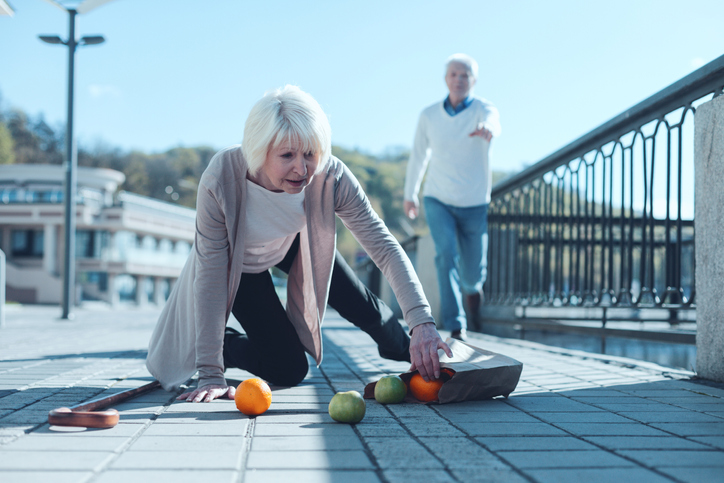Frequent falls may be a sign of something more serious. Cognitive testing could help rule out brain health problems.
As people age, they may begin to lose muscle mass and bone density. It might make familiar physical activities substantially more challenging. For adults over the age of 65, these changes could lead to falls — and that’s no small thing. For older adults, a little tumble can lead to serious injuries.
Falls aren’t always just a matter of fading strength. They could be a sign of something going on in the brain. When someone has the early stages of a neurodegenerative disease, like Alzheimer’s or another form of dementia, neurons in parts of the brain begin to die off. If the parts of the brain that control balance or coordination are affected, this could boost a person’s chances of falling.
“When a person’s mobility is being diminished, that could be a sign that something needs further evaluation,” said Dr. Beau M. Ances, a Washington University professor of neurology who studies neurodegenerative diseases like Alzheimer’s and Parkinson’s.
Falls and brain science
In a 2020 study looking at the link between falls in older adults and dementia, Ances and colleagues followed more than 850 adults over two years, tracking their cognitive scores and the number of times they took a fall. They found that people who had multiple falls over this period also showed signs of cognitive decline, including impairments in memory, concentration and language.
The group of people who fell just once during the study period were slower at solving problems and had more trouble paying attention than adults who hadn’t experienced any falls.
The study participants who fell a couple different times during the study period, the researchers saw, were more likely to develop a form of cognitive decline called motoric cognitive risk, which can make it more difficult to maintain one’s balance — and that can raise a person’s risk of developing more serious cognitive issues down the line
Take steps to prevent falls
Whatever the cause of falls, there are several things you can do to help prevent them, from low-impact, balance- and reaction-boosting exercises, to safer home design choices.
Experts suggest small accessibility-conscious design updates to help prevent falls and allow you or your loved ones to live independently for longer. Grant Warner, principal and senior designer at HKS Architects designs homes for people with dementia and their givers. “We want to keep [the environment] very natural, very soft and low contrast,” said in a Being Patient Live Talk. Patterned flooring could confuse patients with dementia, making them anticipate that they’re stepping down, leading to a fall.
If you’ve noticed yourself or a loved one feeling unsteady or falling more often, talk with a doctor, and if you’ve recently taken a fall, consider meeting with a brain health specialist for some cognitive testing, which could help catch cognitive health issues early.













